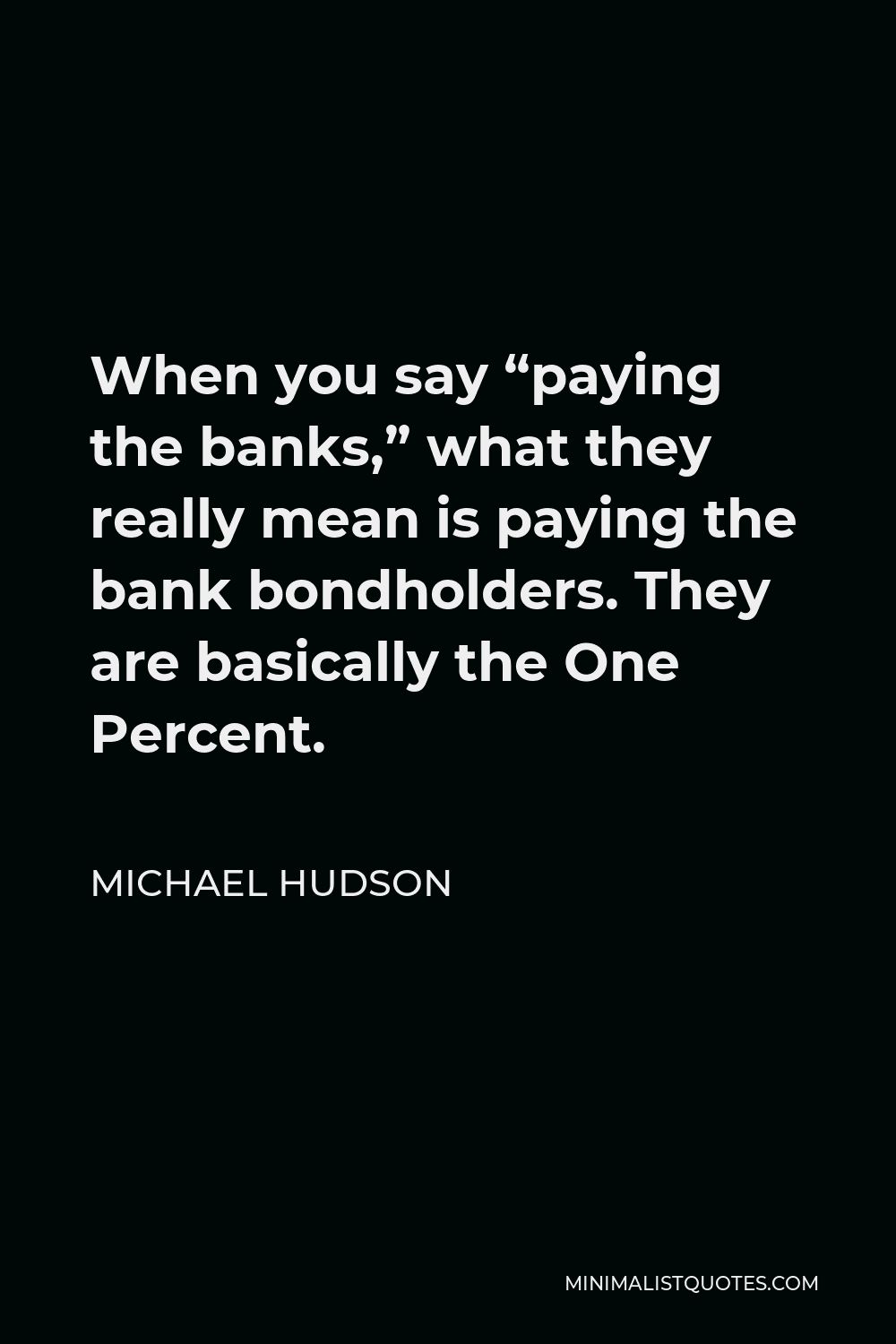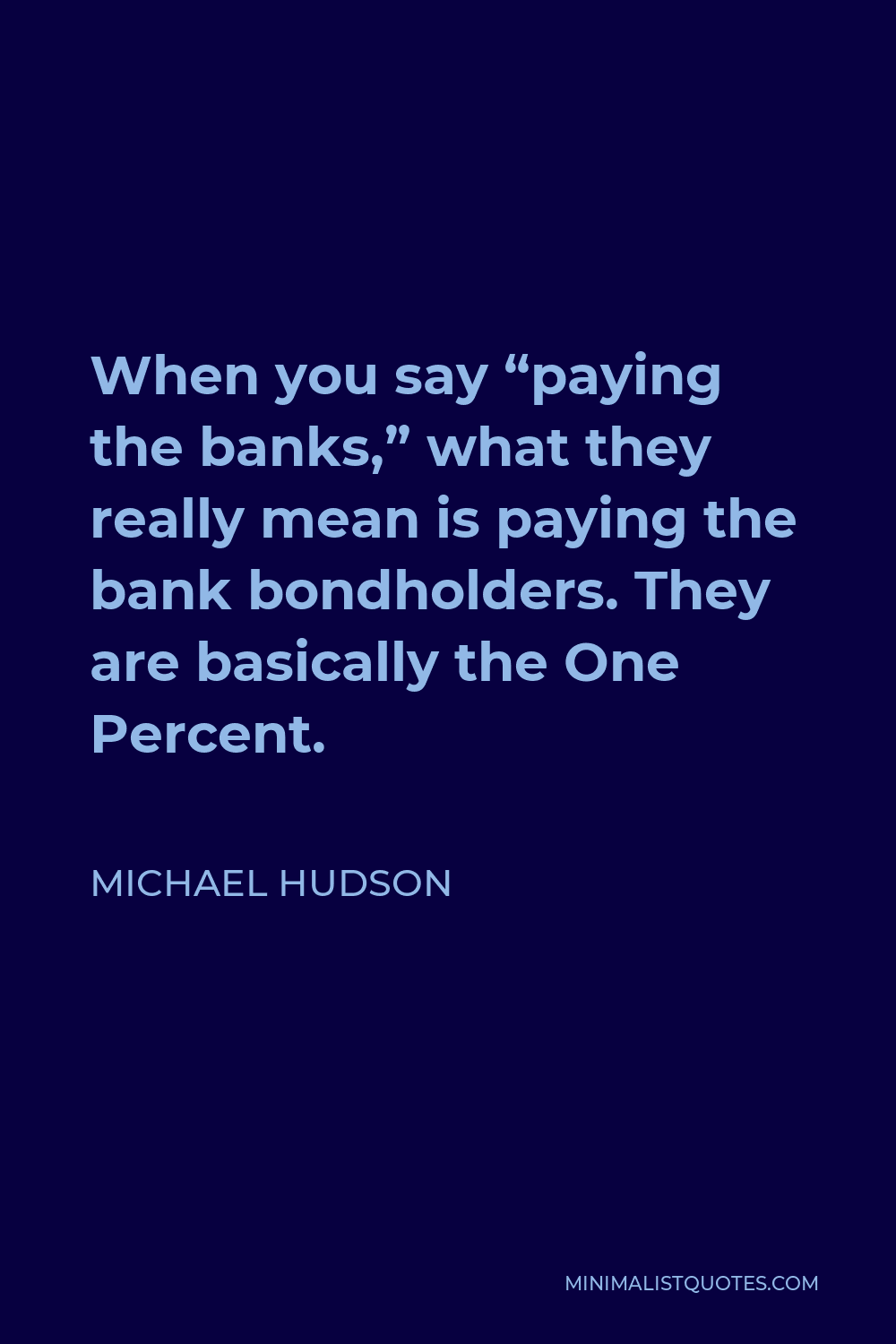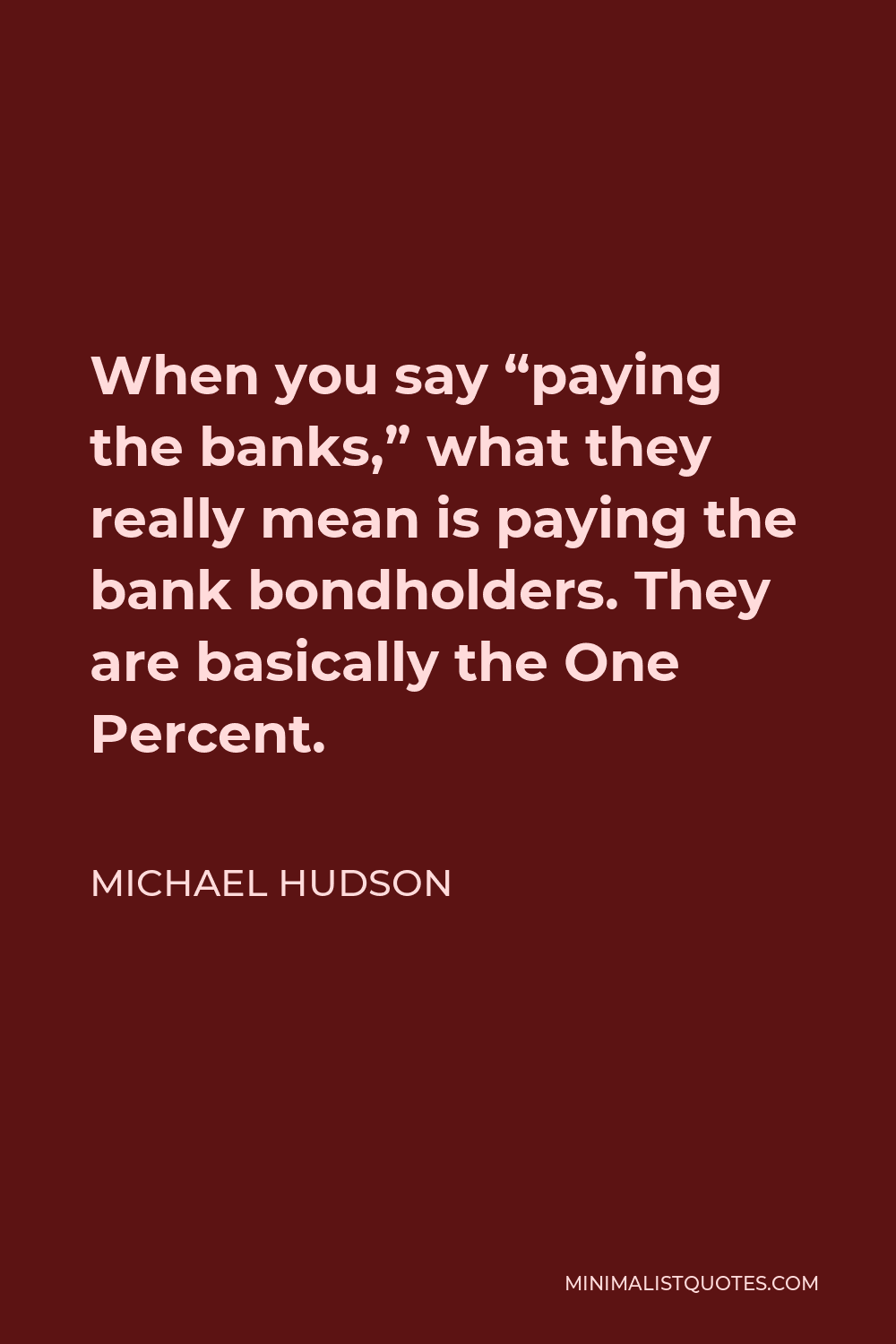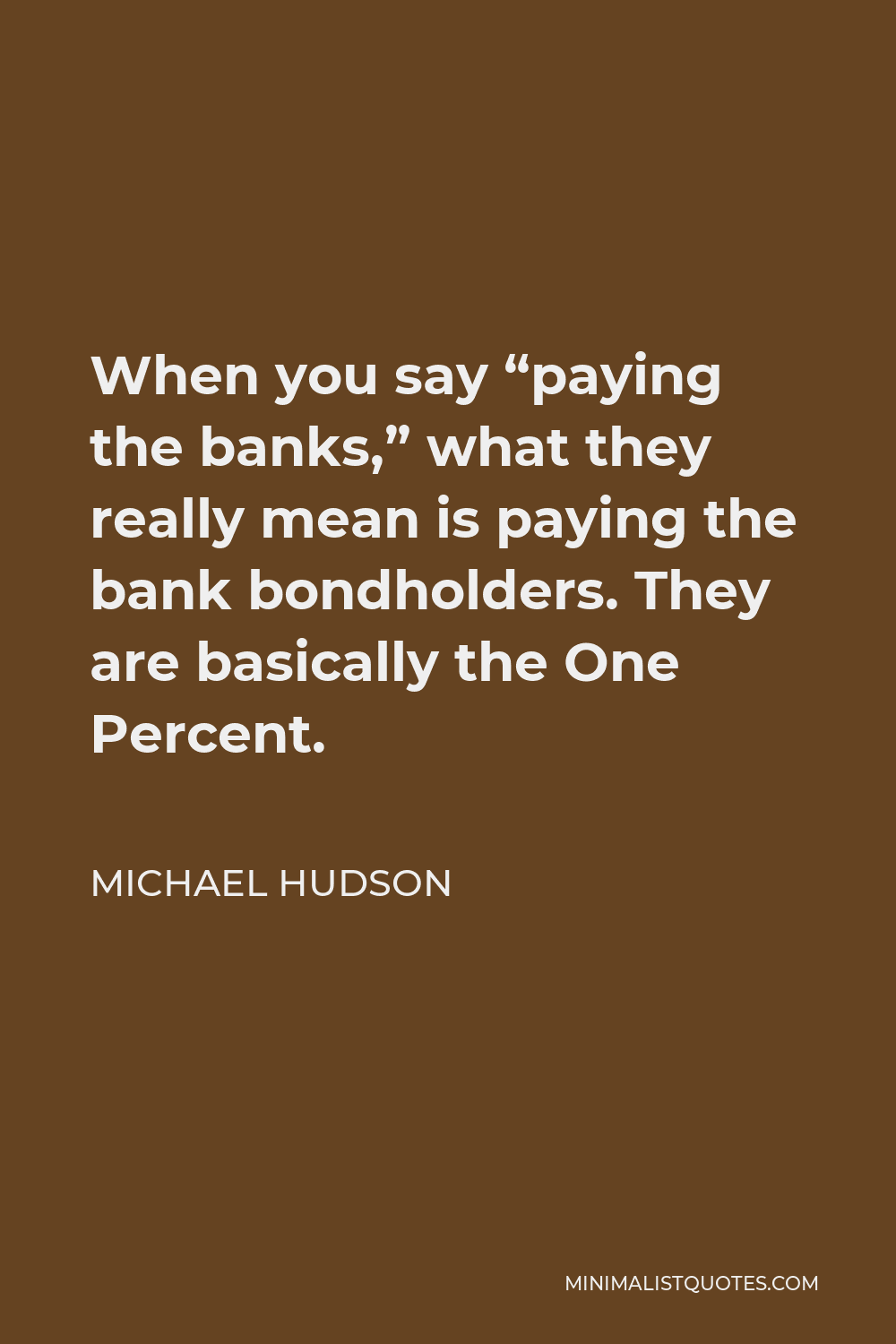Europe is creating the flight of refugees that’s tearing it apart politically, and leading rightwing nationalist parties to gain power to withdraw from the Eurozone.
MICHAEL HUDSONWhen you say “paying the banks,” what they really mean is paying the bank bondholders. They are basically the One Percent.
More Michael Hudson Quotes
-






-





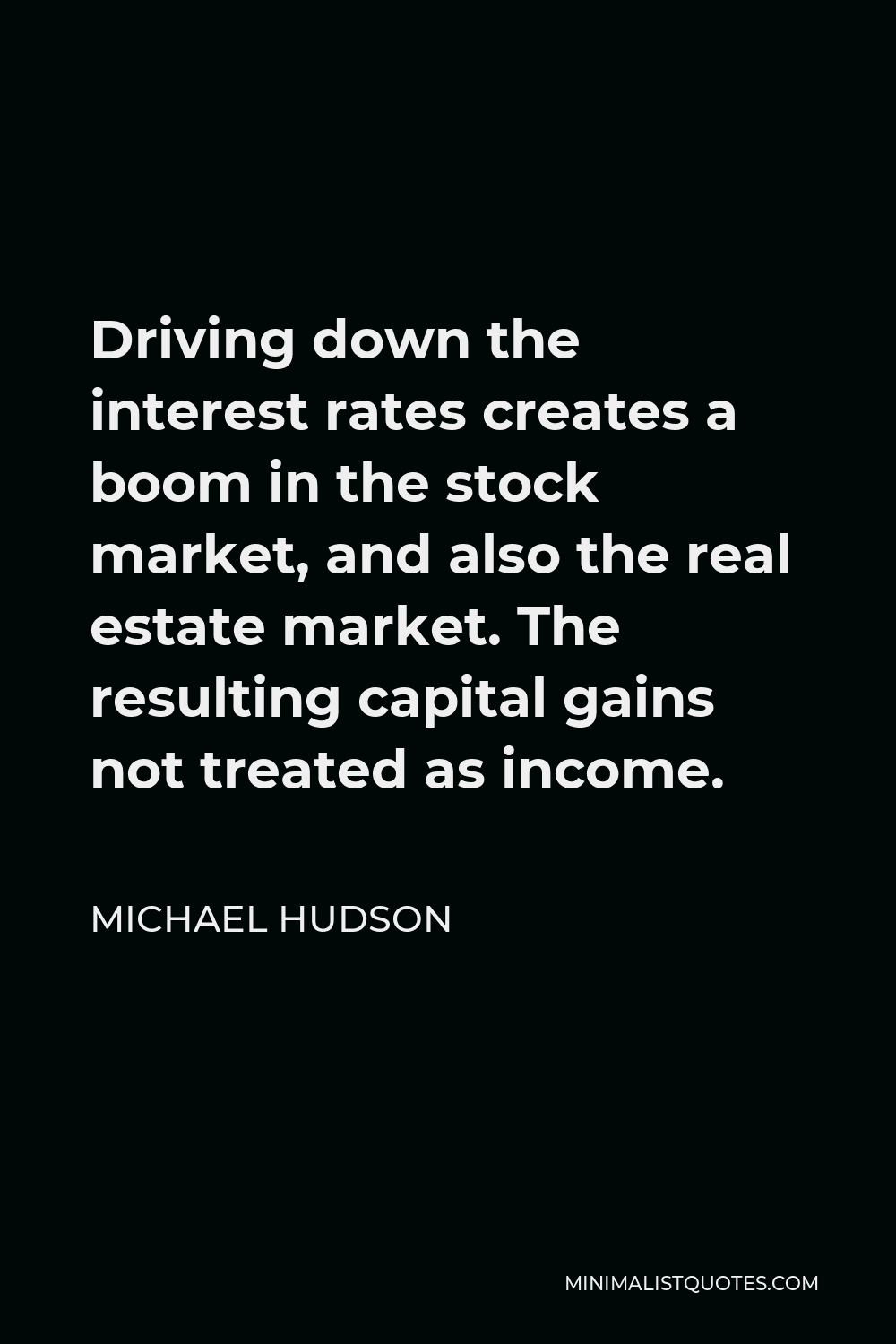
Driving down the interest rates creates a boom in the stock market, and also the real estate market. The resulting capital gains not treated as income.
MICHAEL HUDSON -





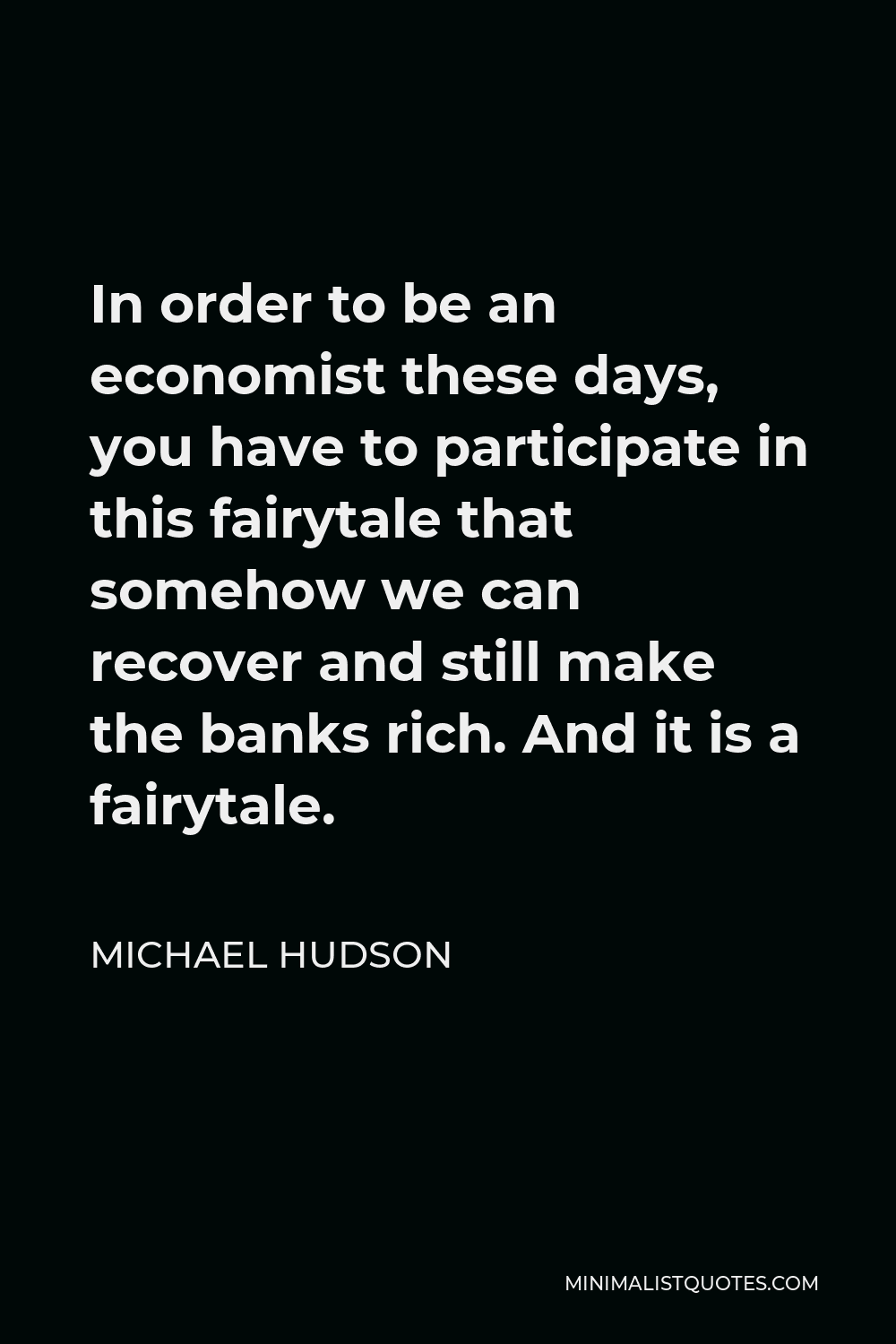
In order to be an economist these days, you have to participate in this fairytale that somehow we can recover and still make the banks rich. And it is a fairytale.
MICHAEL HUDSON -





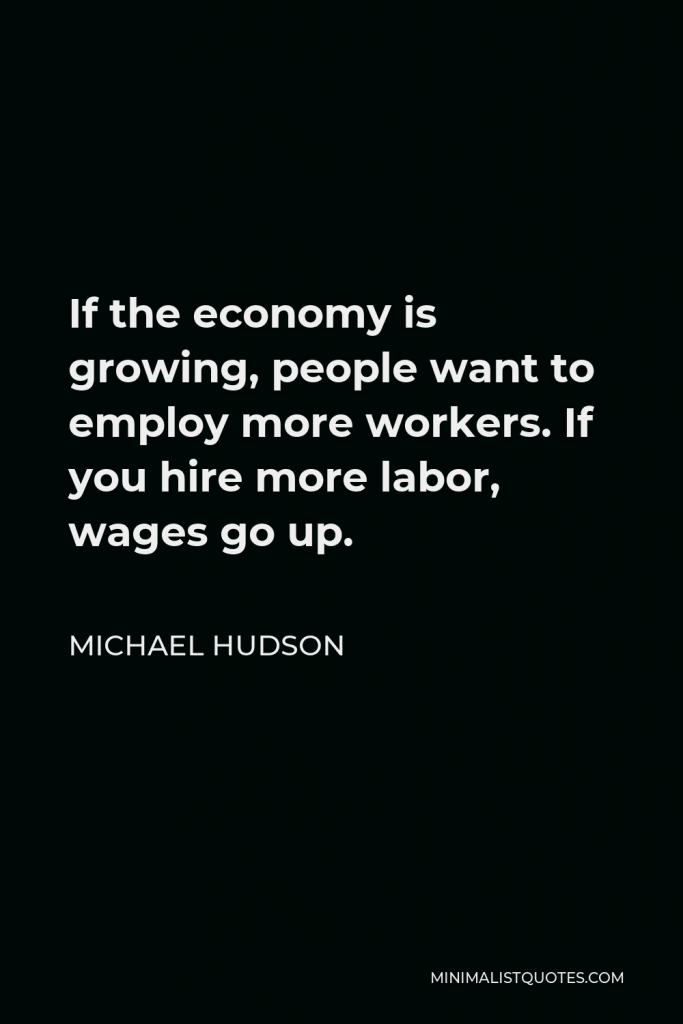

If the economy is growing, people want to employ more workers. If you hire more labor, wages go up.
MICHAEL HUDSON -





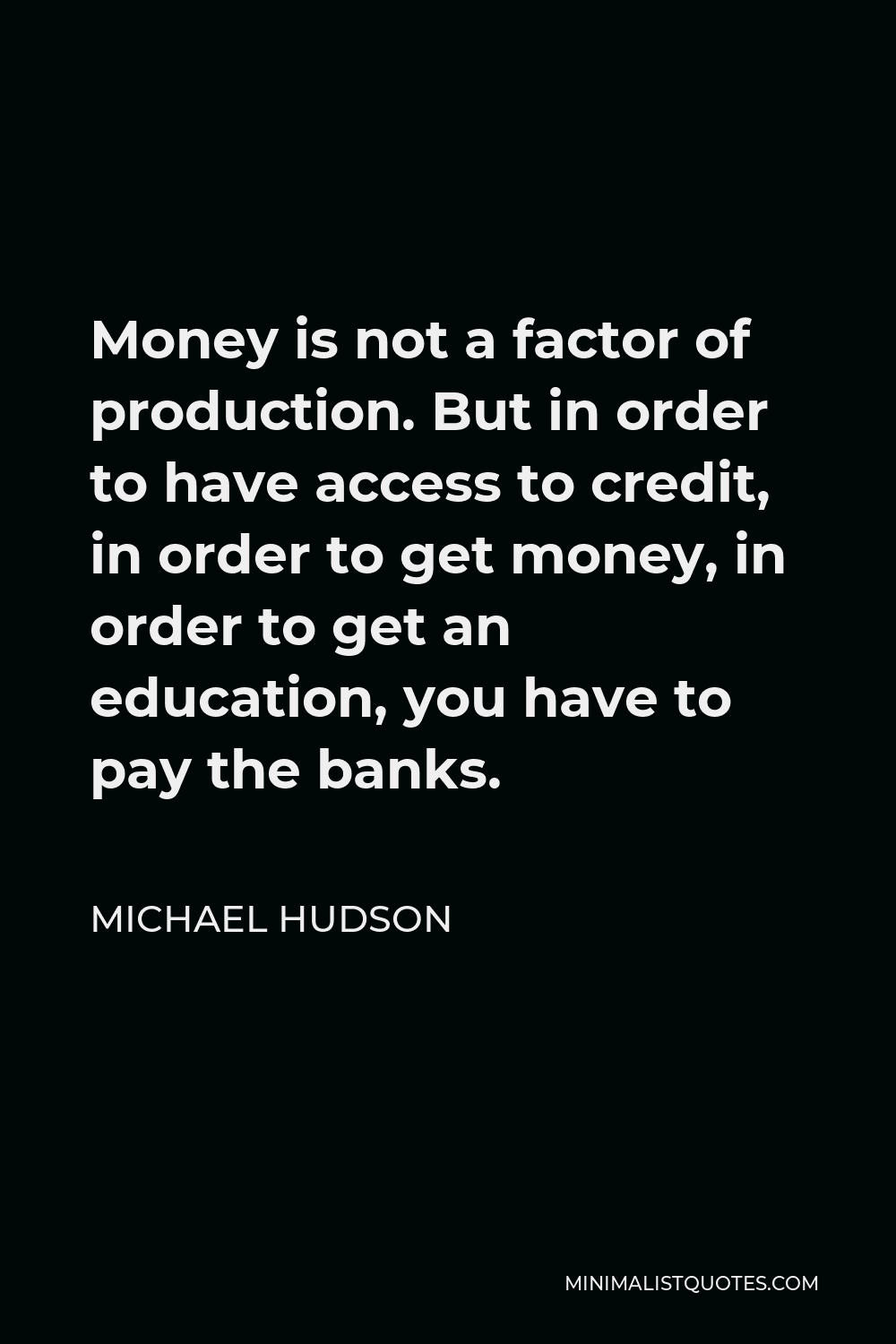
Money is not a factor of production. But in order to have access to credit, in order to get money, in order to get an education, you have to pay the banks.
MICHAEL HUDSON -





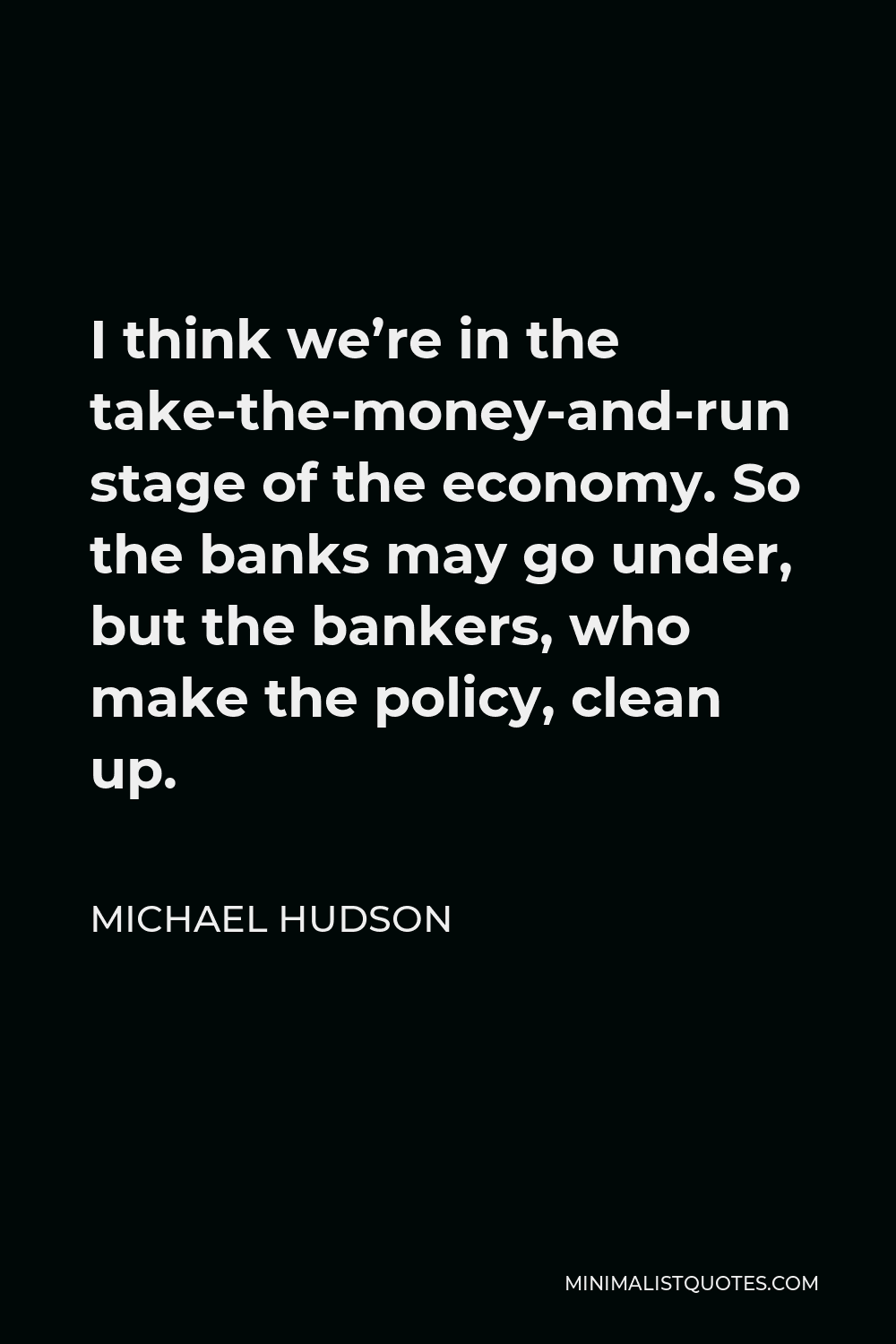
I think we’re in the take-the-money-and-run stage of the economy. So the banks may go under, but the bankers, who make the policy, clean up.
MICHAEL HUDSON -





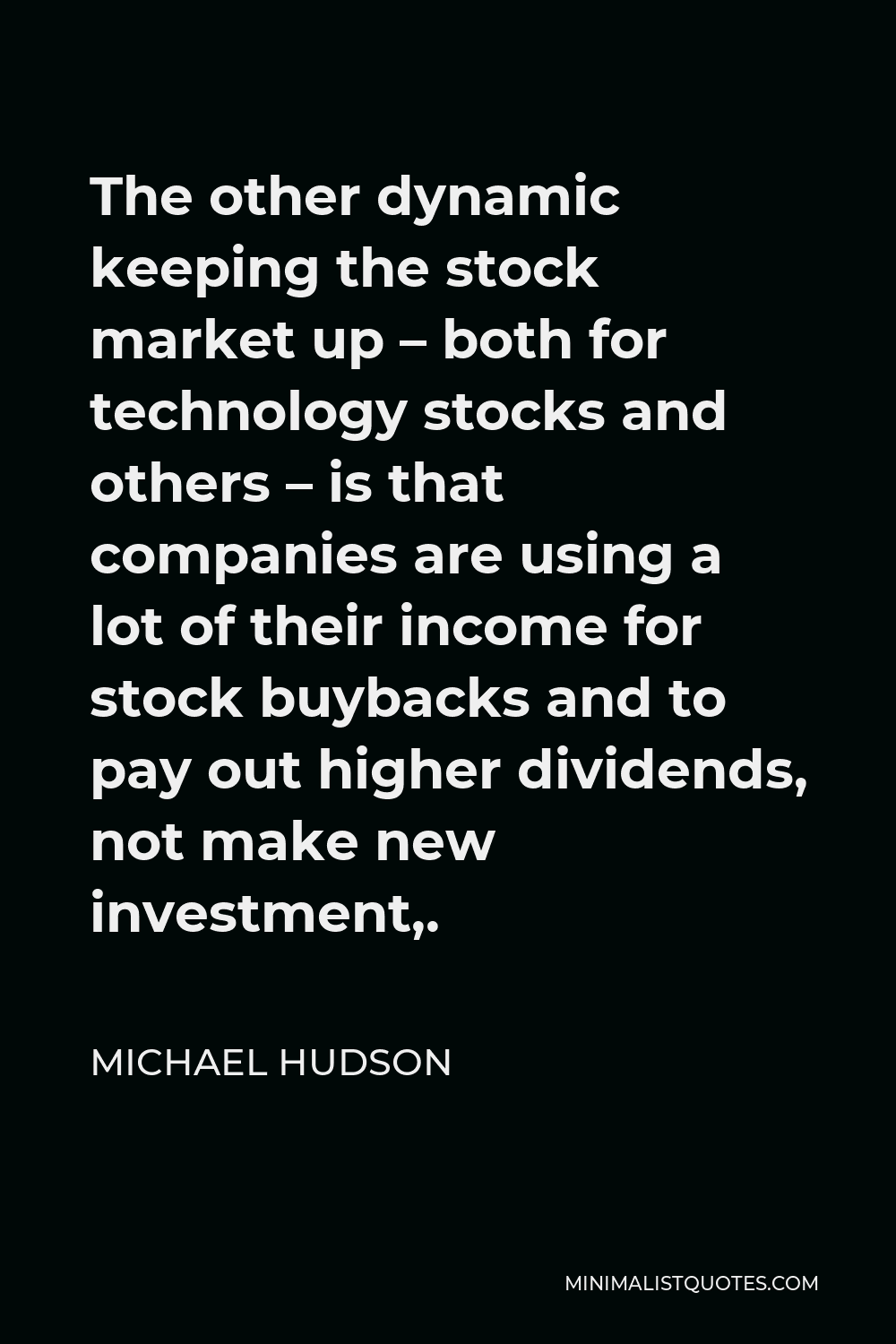
The other dynamic keeping the stock market up – both for technology stocks and others – is that companies are using a lot of their income for stock buybacks and to pay out higher dividends, not make new investment,.
MICHAEL HUDSON -





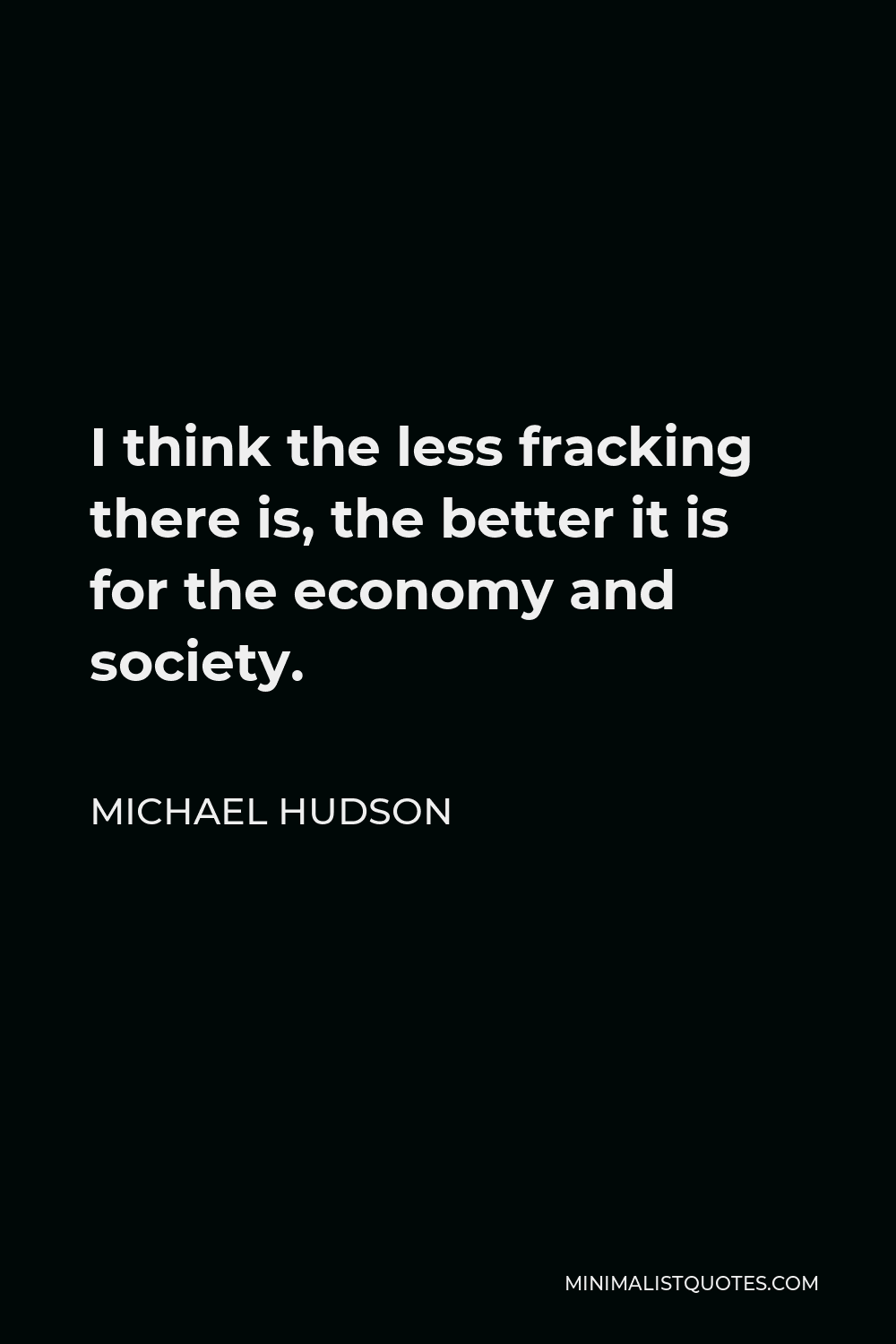
I think the less fracking there is, the better it is for the economy and society.
MICHAEL HUDSON -





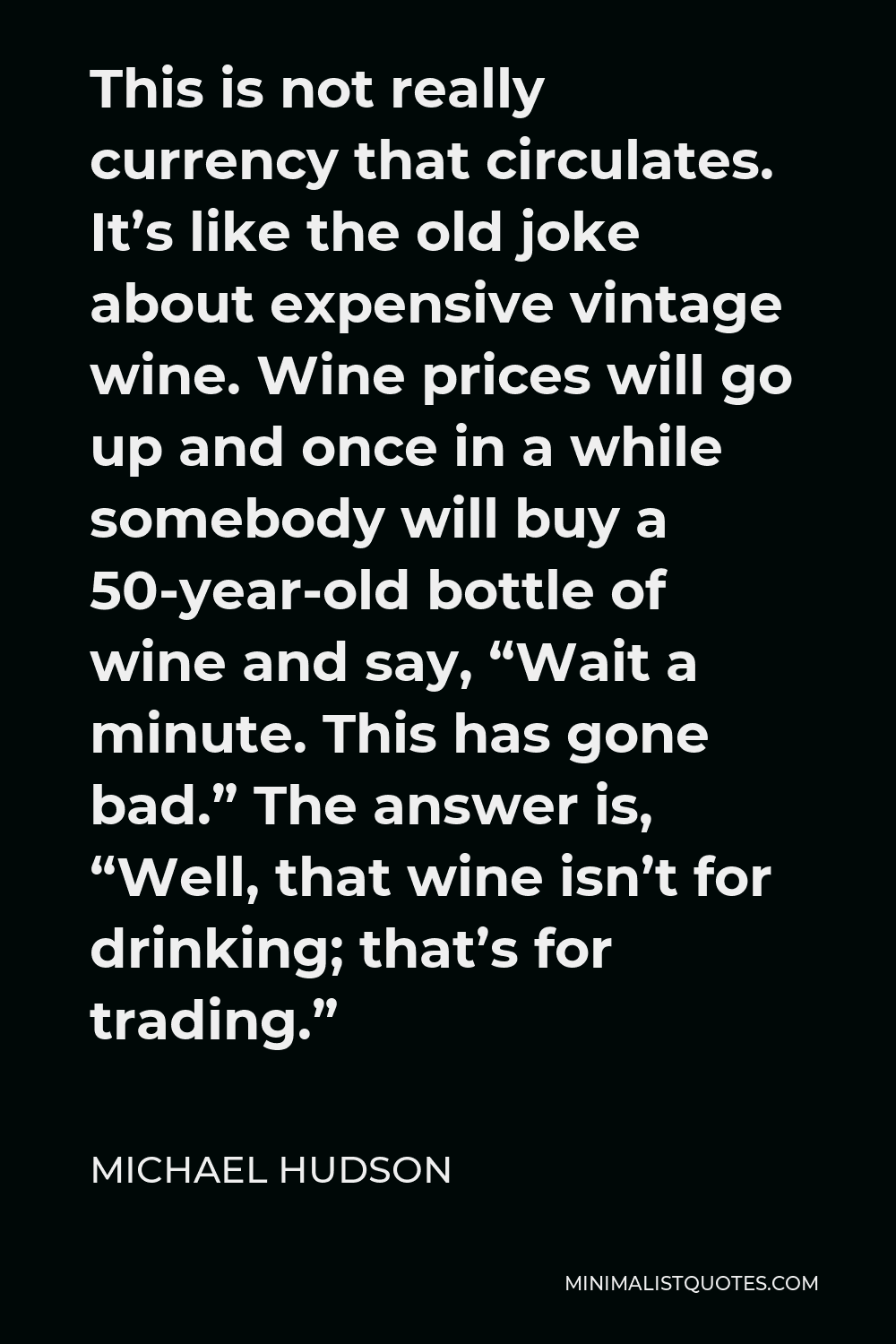
This is not really currency that circulates. It’s like the old joke about expensive vintage wine. Wine prices will go up and once in a while somebody will buy a 50-year-old bottle of wine and say, “Wait a minute. This has gone bad.” The answer is, “Well, that wine isn’t for drinking; that’s for trading.”
MICHAEL HUDSON -





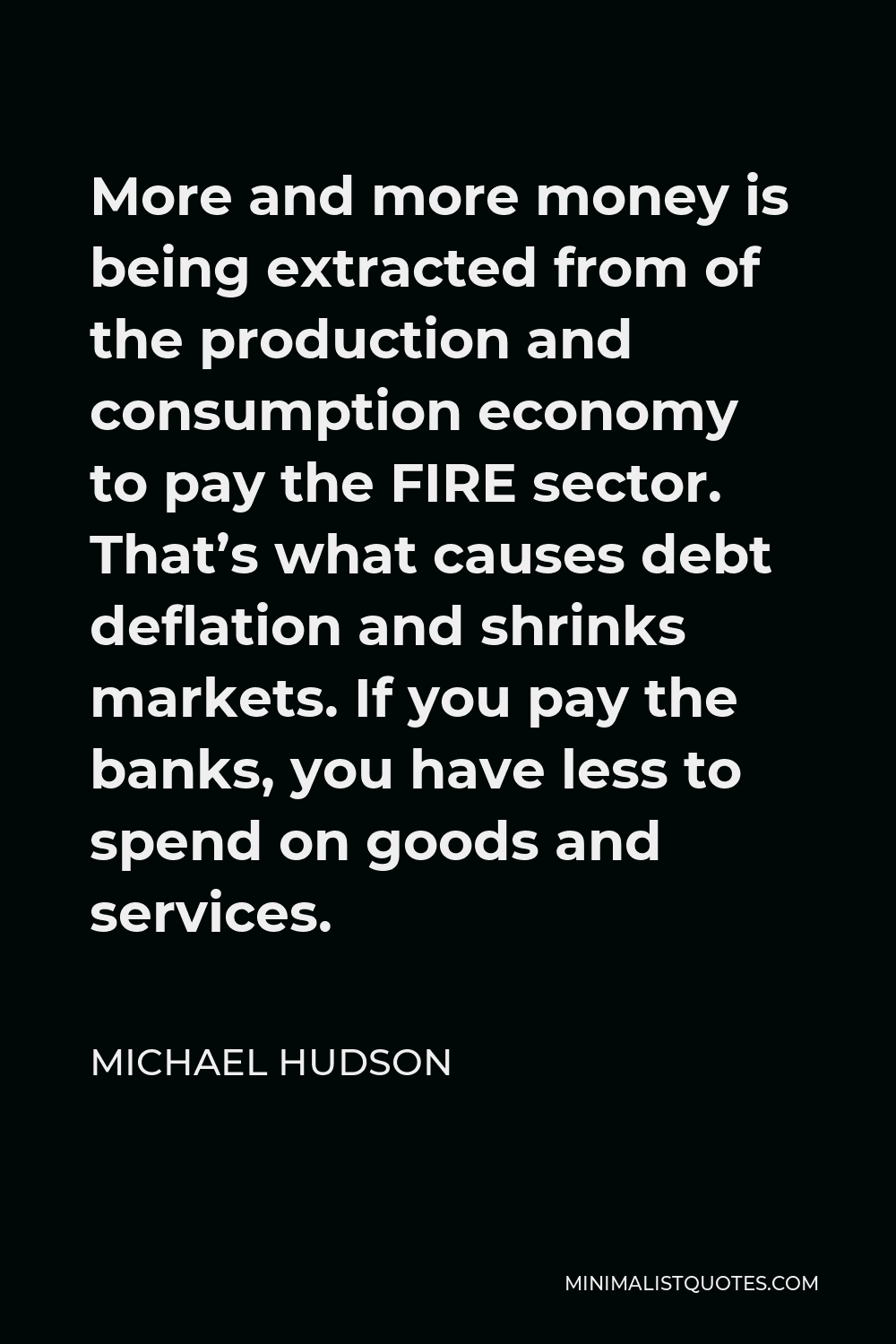
More and more money is being extracted from of the production and consumption economy to pay the FIRE sector. That’s what causes debt deflation and shrinks markets. If you pay the banks, you have less to spend on goods and services.
MICHAEL HUDSON -





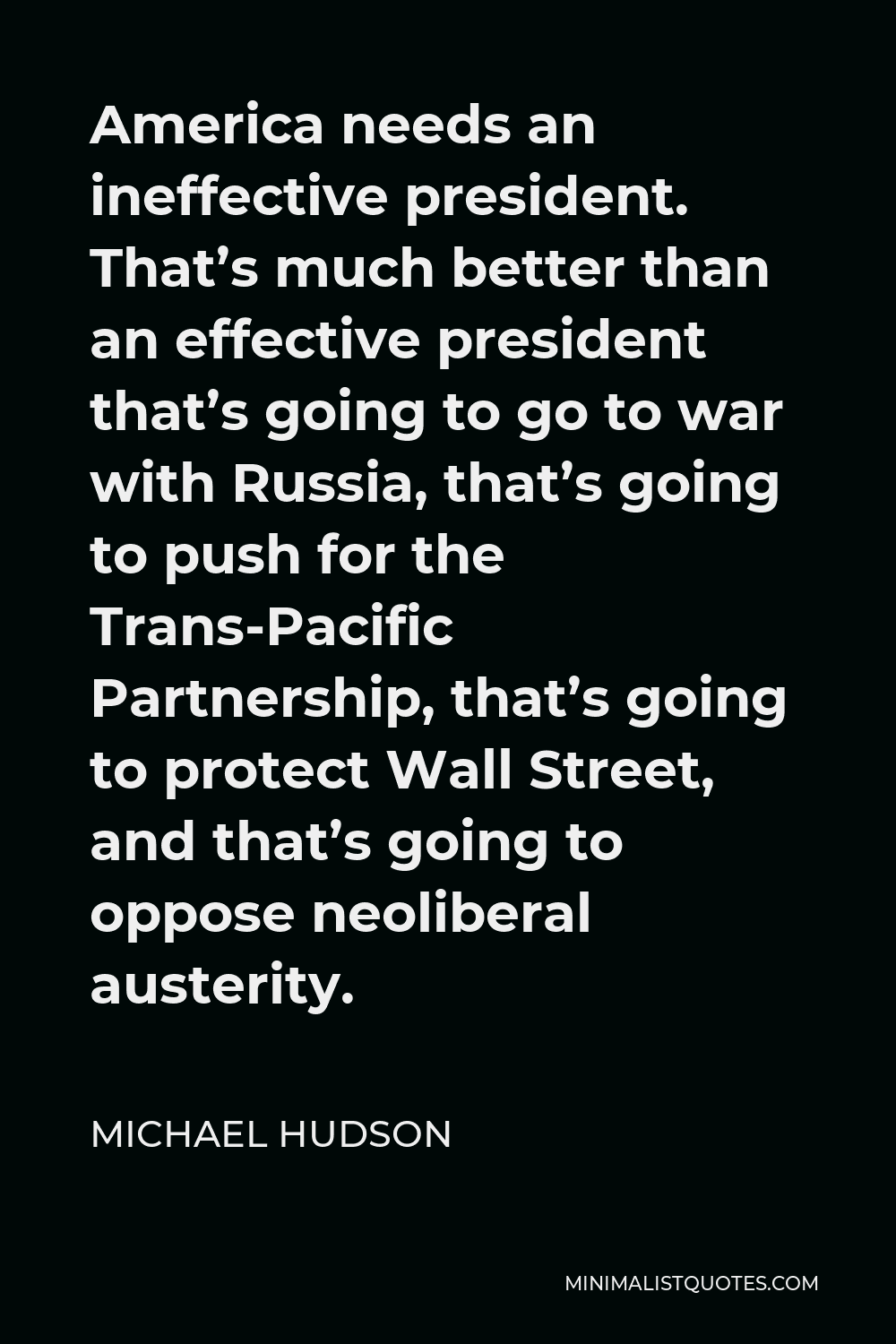
America needs an ineffective president. That’s much better than an effective president that’s going to go to war with Russia, that’s going to push for the Trans-Pacific Partnership, that’s going to protect Wall Street, and that’s going to oppose neoliberal austerity.
MICHAEL HUDSON -





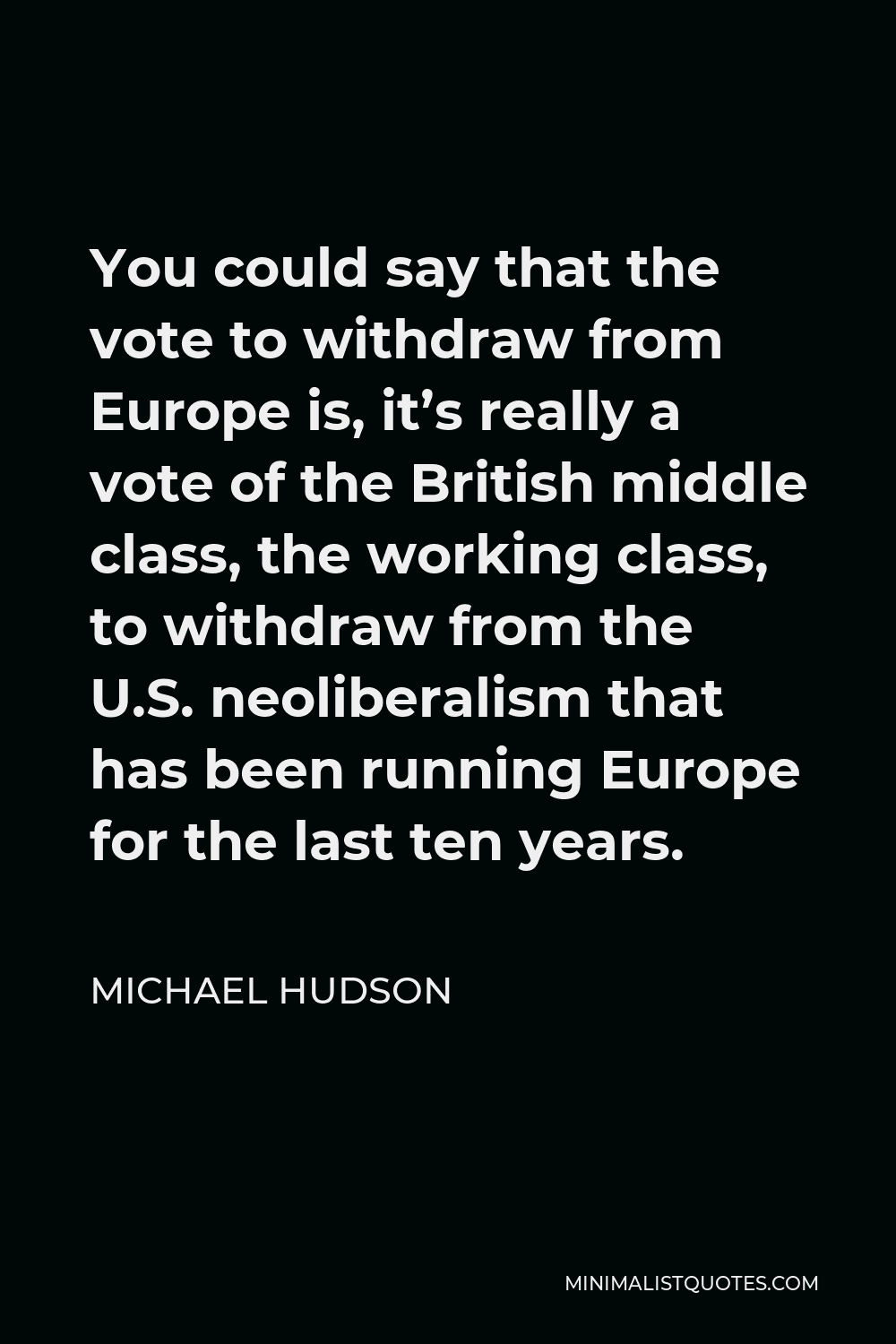
You could say that the vote to withdraw from Europe is, it’s really a vote of the British middle class, the working class, to withdraw from the U.S. neoliberalism that has been running Europe for the last ten years.
MICHAEL HUDSON -





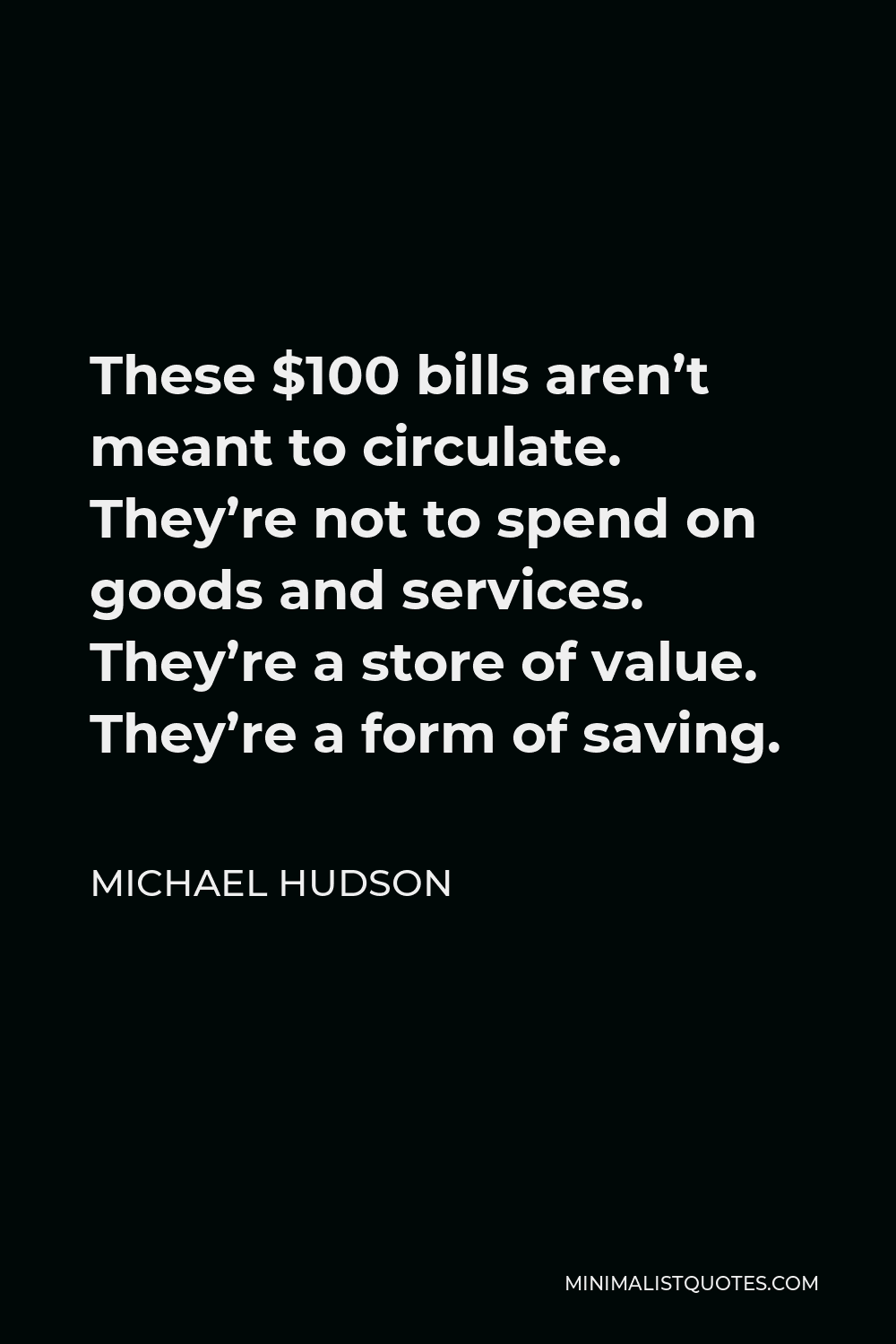
These $100 bills aren’t meant to circulate. They’re not to spend on goods and services. They’re a store of value. They’re a form of saving.
MICHAEL HUDSON -





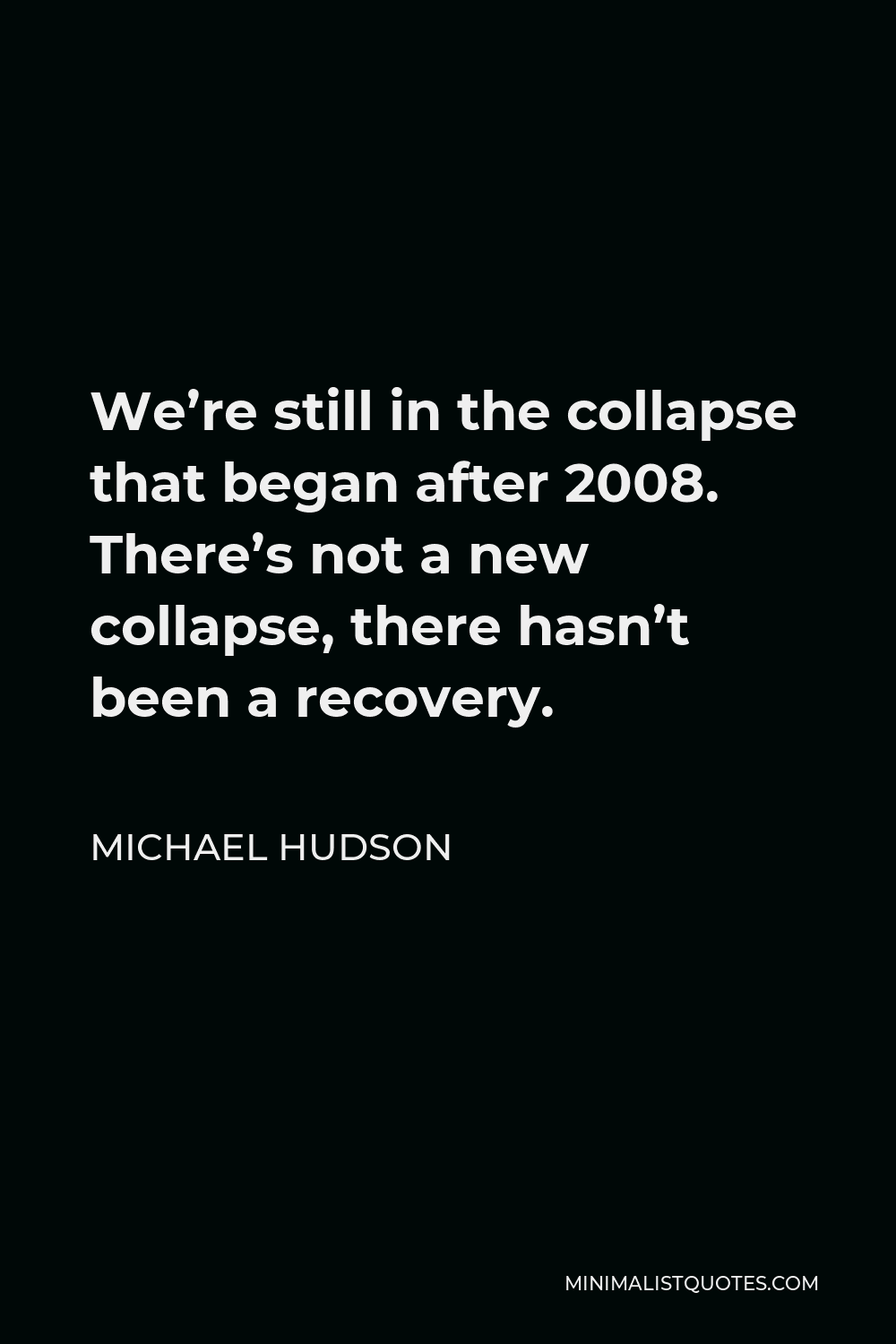
We’re still in the collapse that began after 2008. There’s not a new collapse, there hasn’t been a recovery.
MICHAEL HUDSON -





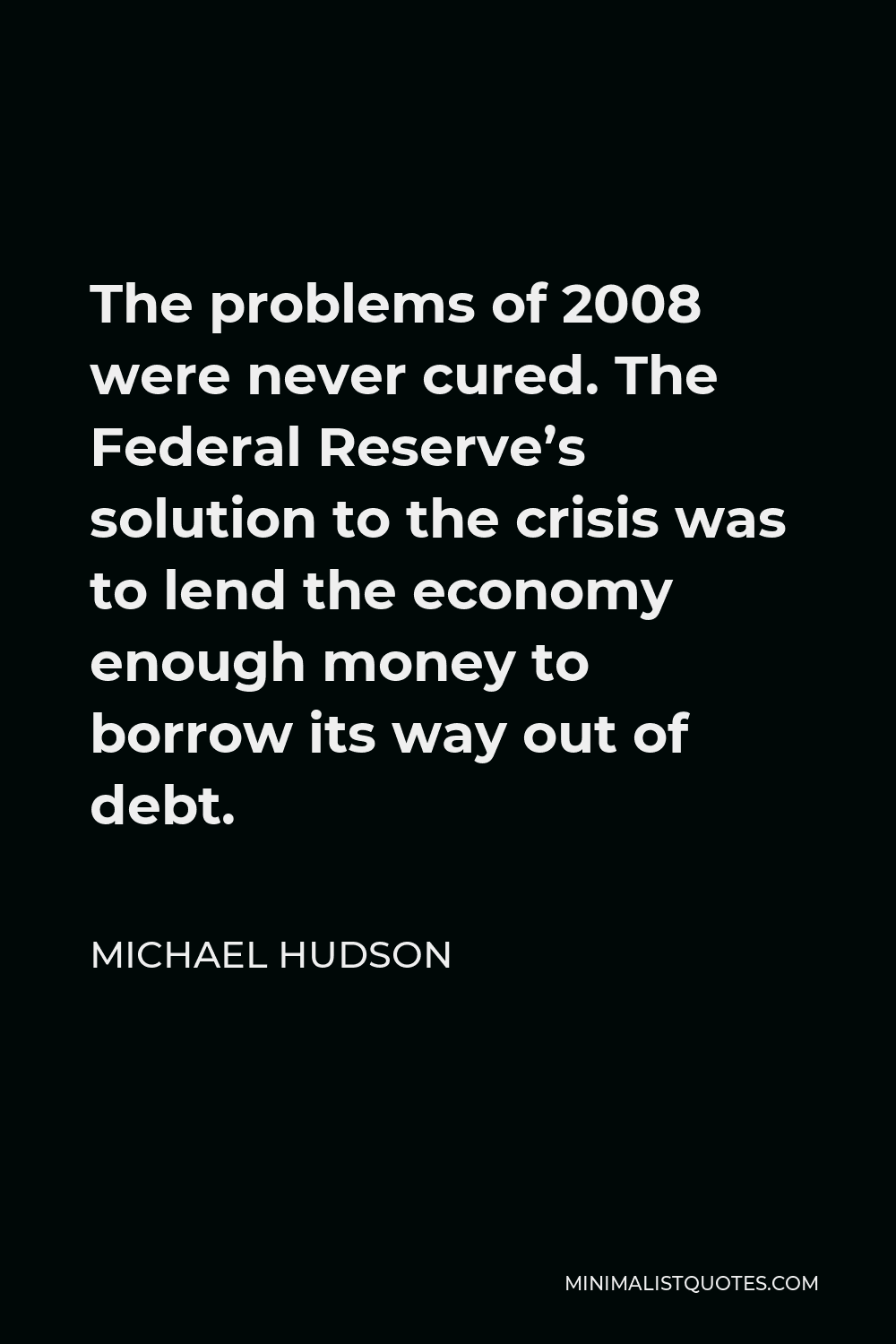
The problems of 2008 were never cured. The Federal Reserve’s solution to the crisis was to lend the economy enough money to borrow its way out of debt.
MICHAEL HUDSON -





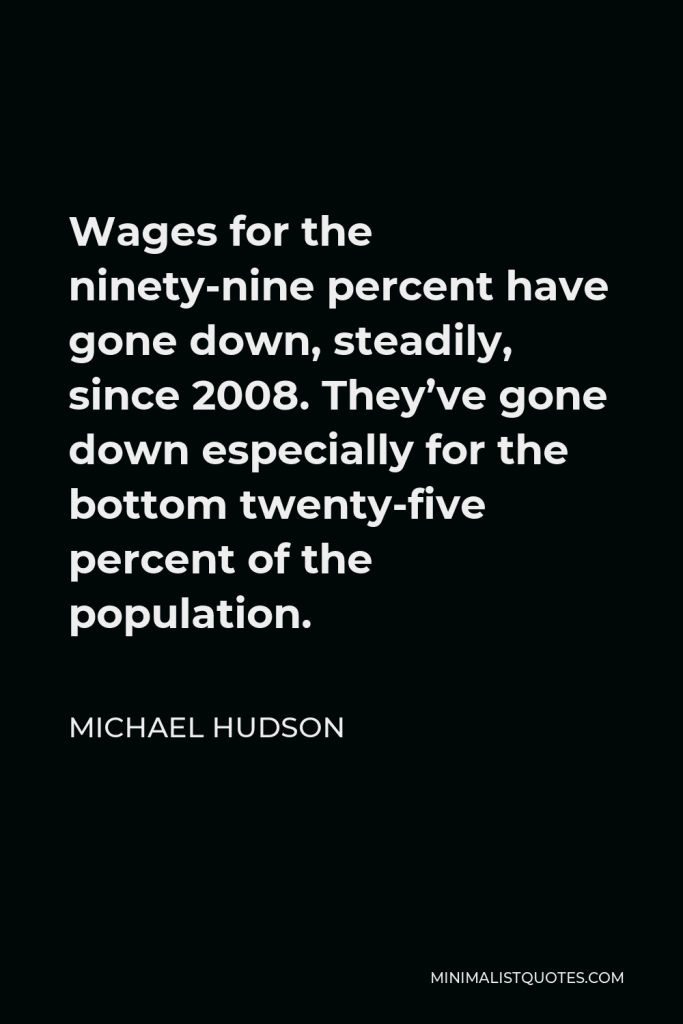

Wages for the ninety-nine percent have gone down, steadily, since 2008. They’ve gone down especially for the bottom twenty-five percent of the population.
MICHAEL HUDSON
